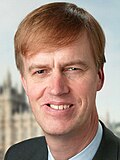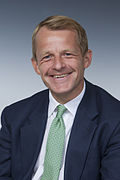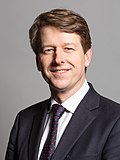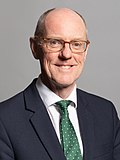| Name | Portrait | Took office | Left office | Political party | Prime Minister |
|---|
| Minister of State, Education and Science |
|---|
| Angela Rumbold MP for Mitcham and Morden | | June 1987 | 24 July 1990 | Conservative | | Margaret Thatcher (Third Thatcher ministry) |
|---|
| Tim Eggar MP for Enfield North | | 24 July 1990 | 14 April 1992 | Conservative | | John Major (First Major ministry) |
|---|
| Emily Blatch, Baroness Blatch | | 14 April 1992 | 20 July 1994 | Conservative | | John Major (Second Major ministry) |
|---|
| Eric Forth MP for Mid Worcestershire | | 20 July 1994 | 2 May 1997 | Conservative | | John Major (Second Major ministry) |
|---|
| Stephen Byers MP for North Tyneside | | 2 May 1997 | 27 July 1998 | Labour | | Tony Blair (First Blair ministry) |
|---|
| Estelle Morris MP for Birmingham Yardley |  | 28 July 1998 | 8 June 2001 | Labour | | Tony Blair (First Blair ministry) |
|---|
| Stephen Timms MP for East Ham |  | 11 June 2001 | 24 October 2002 | Labour | | Tony Blair (Second Blair ministry) |
|---|
| David Miliband MP for South Shields |  | 24 October 2002 | 16 December 2004 | Labour | | Tony Blair (Second Blair ministry) |
|---|
| Stephen Twigg MP for Enfield Southgate |  | 16 December 2004 | 5 May 2005 | Labour | | Tony Blair (Second Blair ministry) |
|---|
| Jacqui Smith MP for Redditch |  | 6 May 2005 | 5 May 2006 | Labour | | Tony Blair (lll) |
|---|
| Jim Knight MP for South Dorset |  | 5 May 2006 | 5 June 2009 | Labour | | Tony Blair (lll) Gordon Brown (l) |
|---|
| Vernon Coaker MP for Gedling |  | 8 June 2009 | 11 May 2010 | Labour | | Gordon Brown (l) |
|---|
| Minister of State for Schools |
|---|
|
| Nick Gibb MP for Bognor Regis and Littlehampton |  | 13 May 2010 | 4 September 2012 | Conservative | | David Cameron (Coalition) |
|---|
| David Laws MP for Yeovil |  | 4 September 2012 | 8 May 2015 | Liberal Democrat | | David Cameron (Coalition) |
|---|
| Minister of State for School Standards |
|---|
|
| Nick Gibb MP for Bognor Regis and Littlehampton |  | 12 May 2015 | 15 September 2021 | Conservative | | David Cameron
(II)
Theresa May
(I)(II)
Boris Johnson
(I)(II) |
|---|
| Robin Walker MP for Worcester |  | 16 September 2021 | 6 July 2022 | Conservative | | Boris Johnson
(II) |
|---|
| Will Quince MP for Colchester |  | 7 July 2022 | 7 September 2022 | Conservative | | Boris Johnson
(II) |
|---|
| Parliamentary Under-Secretary of State for School Standards |
|---|
| Jonathan Gullis MP for Stoke-on-Trent North |  | 8 September 2022 | 28 October 2022 | Conservative | | Liz Truss
(I) |
|---|
| Minister of State for Schools |
|---|
| Nick Gibb MP for Bognor Regis and Littlehampton |  | 26 October 2022 | 13 November 2023 | Conservative | | Rishi Sunak (I) |
|---|
| Damian Hinds MP for East Hampshire |  | 13 November 2023 | 5 July 2024 | Conservative | |
|---|
| Minister of State for School Standards |
|---|
| Catherine McKinnell MP for Newcastle upon Tyne North |  | 8 July 2024 | 6 September 2025 | Labour | | Keir Starmer (I) |
|---|
| Georgia Gould MP for Queen's Park and Maida Vale |  | 6 September 2025 | Incumbent | Labour | |
|---|
|


















